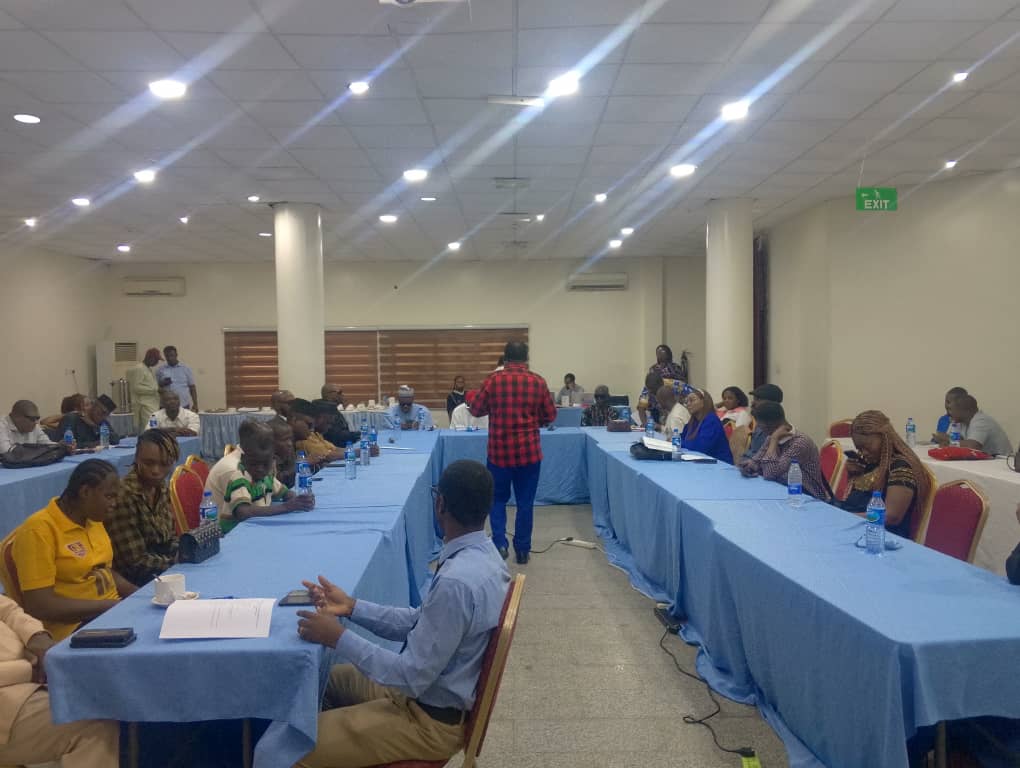By Justina Auta
The Nigeria Association of the Blind (NAB) has called for increased budgetary allocation to improve access to information and education materials for visually-impaired persons, in line with the Marakesh Treaty.
The association made the call on Thursday in Abuja at a two-day stakeholders’ meeting on the status of the implementation of the Marakesh Treaty in Nigeria.
The News Agency of Nigeria (NAN) reports that the Marrakesh Treaty was adopted on June 27, 2013 in Marrakesh, Morocco, to form part of the international copyright treaties administered by the World Intellectual Property Organisation (WIPO).
The goal of the treaty is to create a set of mandatory limitations and exceptions for the benefit of the blind, visually impaired, and otherwise print
disabled (VIPs).
It is also to ensure that books are made available globally in accessible formats, such as Braille, audio and large print, and DAISY1 formats, as well as facilitate access to published works for persons who are blind, visually impaired, or otherwise print disabled.
The former President of NAB, Dr Ishaku Adamu, therefore, explained that the treaty is an agreement signed by the Federal Government to improve access to published works for people with print disabilities.
Adamu added that the treaty seeks to remove all legislative barriers that prevent access to those materials, whether across national and
international borders, which Nigeria has domesticated and ratified.
He, however, said that less than one per cent of national budget was allocated for the provision of accessible education materials for visually impaired students.
According to him, poor implementation of the treaty has further affected access to education, level of participation and exclusion from information for visually impaired persons.
He said “we should be able to engage these agencies to set aside certain percentage of their budget, Federal Ministry of Education and other key ministries to ensure that those books are being provided in accessible format.
“Less than one per cent of such materials is accessible to our people, affecting the level of our education, the level of our participation and other things.
“So, it is very critical for us to engage because we know that government is budgeting, but we want to know what they can do to ensure our people have access to these materials.”
He said the stakeholders meeting was to strategise on improved access to information not only in braille, but also in soft copy, audio, large print and other version, media space, as well as employment opportunities for visually impaired persons.
Earlier, the NAB President, Mr Stanley Onyebuchi, said the engagement would enable stakeholders to review the implementation of the Marakesh treaty and proffer action plans that would enhance implementation.
Onyebuchi said “this treaty is key to those of us that are print disabled, that is those of us that are blind to access publications that will enhance our education, research and others.”
On the implementation of the treaty, he said “I don’t think Nigeria has gone far in implementing this treaty because some of the websites of many organisations, even the government agencies, are not even accessible.
“Although the Nigerian Copyright Commission has done a lot and has been part of this struggle for the domestication of this treaty in Nigeria, other government agencies have not done much in that regard.”
Also, Mr Abdrahman Auwal, the National PRO of NBA, stressed the need to create awareness about the importance of the treaty.
He said “a lot of people don’t even know about it, so, a lot of publishers are there and still stick to their previous copyright law, not knowing that it has been amended.
“We need the media to propagate this in the news to stimulate questions and people will learn about it, which will all be transformed.”
Dr David Okon, a resource person and Consultant, said the meeting was to ensure full implementation of the treaty for the benefit of persons with reading disabilities.
Okon, who is the Executive Director, Total Inclusion, an NGO said “knowledge is acquired through information. And if we are not going to be informed, we are deprived of information, then it means we are deprived of knowledge.
“It also means that we are deprived of literacy and the power to make wealth, power to recreate ourselves and other things.”
NAN reports that in attendance at the stakeholders meeting were representatives of various disability groups, NGOs, CSOs, among others, to suggest ways toward full implementation of the Marakesh Treaty.
NEWS AGENCY OF NIGERIA

